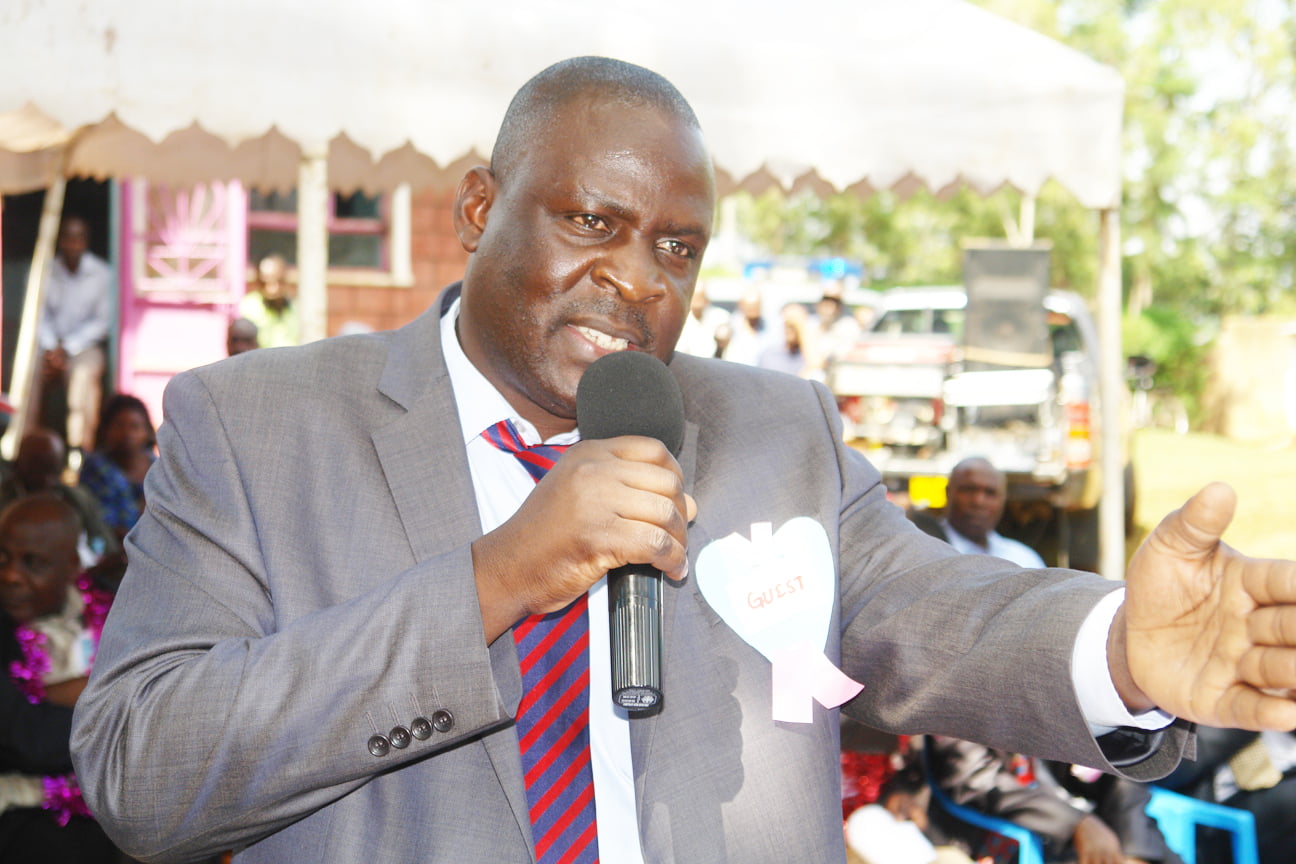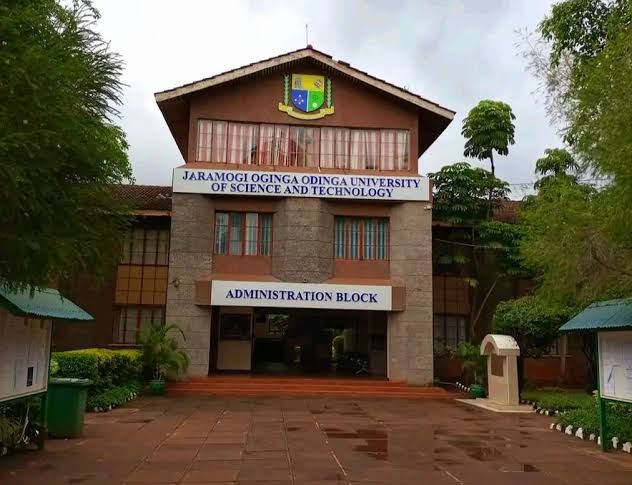By Douglas Simiyu
Kakamega County education sector stakeholders are counting on the new Cabinet Secretary Ezekiel Machogu to confront and neutralize corruption and extortion cartels in his Jogoo House office to redeem a blighted image of the sector.
Machogu, a career administrator was appointed last month to cut a decade-old stranglehold of the ministry by university dons at the helm, which began with Prof James Ole Kiyiapi, Prof Jacob Kaimenyi, Dr Fred Matiang’i and Prof George Magoha.
He takes over the mantle at a time management of public schools have gone back to the bad old ways; thanks to official laxity against examination leaks, Jogoo House extortion rings and protection for principals who charge extra school fees in the name of tuition or remedial education that were banned.
Investigation by the Education News revealed the infamous Matiang’i reforms of 2016 that crashed chronic examination cartels at the Kenya National Examination Council (Knec), banned extra tuition and attendant levies and capped school fees in public secondary schools have collapsed, rendering schools as an ultimate lunch box for syndicators.
Kakamega County Kenya National Union of Teachers (Knut) Secretary Archedius Liyayi said there is no doubt that cartels at Knec and Teachers Service Commission (TSC) have regrouped and cascaded their operations right up to the school level and head teachers are the link persons. “It is a pyramid.”
In public, schools purport to stick to the government school fees structures posted to the ministry websites.
Through covert, some school Boards of Management (BoM) and Principals are minting between Ksh30 million to Ksh50 million annually from extra levies, in the form of project funds, remedial, photocopy or printing paper and purchase of school uniforms.
This is in spite of a June 2021 ministry circular suspending Parent Association (PA) project payments intended to cushion parents against post-Covid-19 economic strain. Schools continue to charge project fees that ranges between KSh5,000 to Ksh15,000.
“Machogu’s predecessor was full of empty threats and inaction. Everything he stood against, remedial, extra levies, examination cheats and school fees hikes have been hatching in his sunset days as he watched helplessly,” Ann Chitayi, a parent in one of the boy schools in Kakamega County, regretted.
“He scrapped extra levies but remained silent on our grumbles. Exam cheating is alive in most top schools today.”
At an extra-county school in Kakamega, another parent James Muchiti complains that though the legitimate fees charged is Ksh35,000 they are paying an additional Ksh18,000 for remedial and construction of a perimeter wall and the ministry auditors pretend not to know.
“The school insists on a clean balance sheet on the extra levies so the student will be sent away for boarding fees balance. This has caused dropouts of students from poor backgrounds,” he adds.
Asked whether the County Education Board (CEB), where he is secretary, approved extra fees for any school in the area, Kakamega County director of education Dickson Ogonyo said he does not speak to the media.
Liyayi says the directive from the CS scrapping the payments was overlooked by local education officials and the kitty turned into a lunch box for the principals, audit inspectors and ministry senior staff.
“We should not be speaking of PA projects fees when it was suspended last year.”
The guideline to charge extra fees dictates that the proposal originates from PA for debate at a general meeting of parents. The minute is sent to the CEB for consideration before it is submitted to the Education CS for approval.
“I’m a member of Kakamega CEB and I confirm that since 2020, we’ve not approved any request for extra fees by a school so where do those principals get the legal backing to charge parents for the projects.”
She said donors had also raised concern over exorbitant school uniform fees charged by various schools.
Education officials who spoke to this reporter in confidence said disconnect between the former minister and grassroots officials impeded their work.
“We did our audits and inspection of the schools…we’re aware of what is happening and Jogoo House has the reports. It’s upon them to act but they instead ‘trade-in’ with the information,” a source disclosed.
Canadian Harambee Education Society (CHES), a non-profit organisation which offers scholarships to bright needy students in Kakamega, Vihiga and Busia counties has similarly been caught up in such sudden midstream school fees increments and says this impede their fees budgeting process.
“Considering that we are donor funded, we send our budget early enough accompanied by fees structures. So midway through the academic year things change and it’s difficult, especially when you are asked to pay more than what you presented in the budget to the financiers,” Rebecca Odhiambo, a CHES programme officer observed.
She said donors had also raised concern over exorbitant school uniform fees charged by various schools.
“As an organisation, we budget for a basic uniform (two shirts, trousers or skirts, sleep over, pullover, sweater, shoes, game skit and socks), which would cost up to Ksh7,000 but in some schools, the uniform has such detail as leg warmers Jumpers, blazers, tracksuits, gumboots, raincoats and the cost could leap to Ksh30,000.”
Rebecca went on: “As CHES we deal with children from deprived homes. If you send them back home, it means they are stuck.”
She said the organisation has been forced to do a re-budget in the middle of the academic year in the last two years to finance the fees deficits created by extra levies.
Our investigation revealed that in almost all public and private boarding schools, uniforms are seldom sold in private uniform outfitter shops but school stores, where the cost is doubled or tripled and the premiums shared among the supplier and school head.
The cost of the uniform also depends on the categorisation of the school with national or extra-county schools enjoying a five-star price tag of up to Ksh30,000 at the school gate. A similar quality set of uniform for a students procured at uniform outfitters is less than Ksh10,000,
Literary and communication scholar Prof Igara Kabaji admits cost of school uniforms was becoming prohibitive. Can you be sent away from school for lack of uniform? he posed and added: “The Education Act is silent on school uniforms but it’s a tradition borrowed from the British education system. There is no law tying schooling to uniforms,”
He says uniforms should be modest and affordable because they ease student identification particularly when outside school compounds. “Yes, that cost of uniform has become hay for some school managers.”
Kabaji says the ministry need to crack the whip on heads who send students away over uniform fee.
“It’s an accounting flaw to credit the student uniform account from the fees account and send the student away to collect the fees balance”, he observes.






